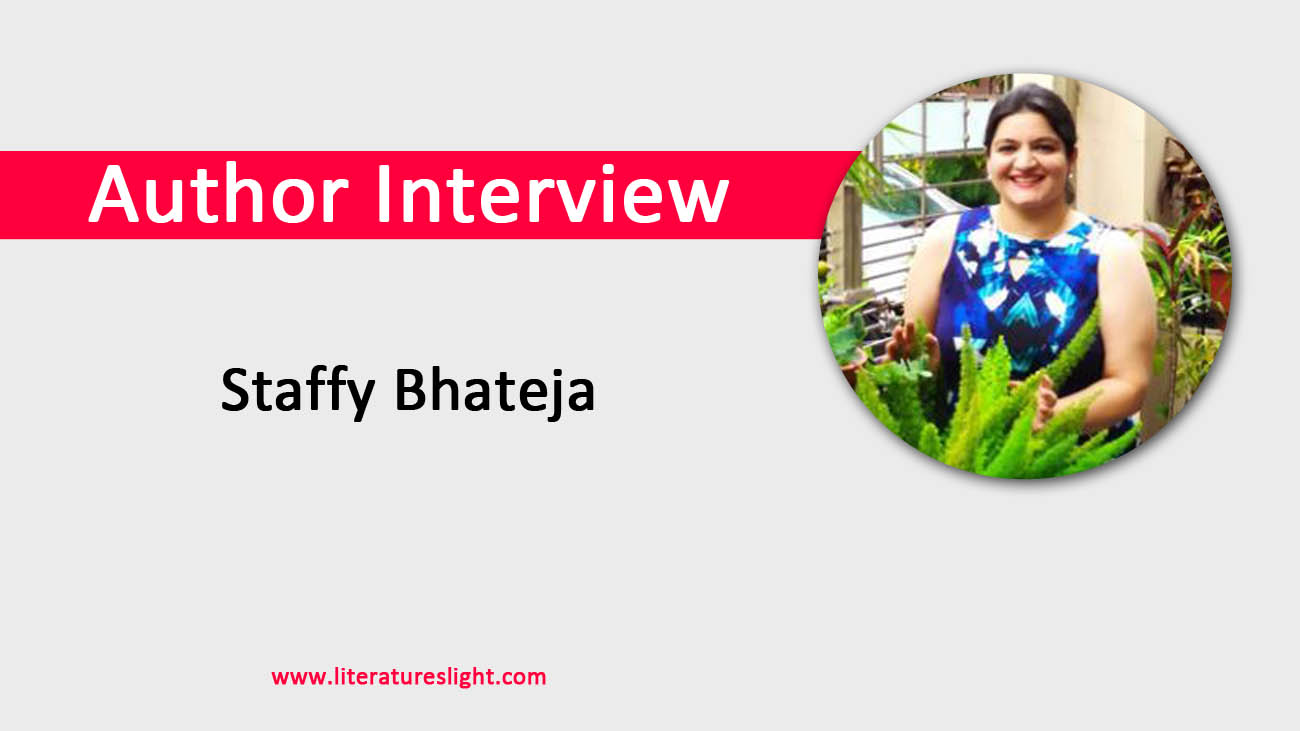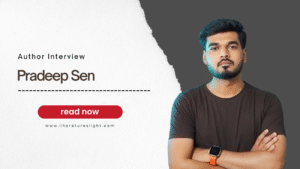Staffy Bhateja, who writes under the pen name Steffi, is a 27-year-old poet hailing from The City Beautiful – Chandigarh. Staffy has completed her Masters in English Literature from MCM DAV College, affiliated to Panjab University and has enrolled herself for Masters in Philosophy at the University’s main campus. She defines herself as a creative soul, with poetry and painting being two of her biggest passions.
For her, reading and writing are not merely hobbies; she considers them as brilliant ways to keep herself in touch with reality. “A reader lives a thousand lives before he dies, and the one who doesn’t read, lives just one.” Very truly stated by George RR Martin, this is a quote she has always kept close to her heart. She is an active participant of many poetry groups on Facebook such as The Asian Literary Society, Poets, Artists Unplugged, Random Reflections etc. An extremely positive and vibrant person, she believes in the benevolence of the Almighty and sees His reflection everywhere. She can be reached at staffybhateja@gmail.com.
Interviewer: The first question of this interview to you – Please tell me about poetry? What is your perception about poetry ma’am?
Staffy Bhateja: “Poetry is the spontaneous overflow of powerful feelings: it takes its origin from emotion recollected in tranquility.” I have always held these words of William Wordsworth very close to my heart. As poets, we are creative beings; we can see/notice even the minutest of subtleties which people tend to overlook. We can draw beauty out of the mundane. Poetry, like any other creative hobby, is healing and cathartic in its nature. In the capitalistic world of today, it is literature, and especially poetry, according to me, which is the saviour for humanity and something to which people can relate.
Interviewer: When did you start writing poetry? Do you remember the first time you wrote something? What was the source of your inspiration earlier? Did it change with time?
Staffy Bhateja: I started writing poetry while I was pursuing my Master’s in English Literature. It was because of the influence of a friend called Diksha Kamlani. She had been writing poems since she was a child. As we became friends, I instantly connected with her creative spirit and till date, poetry remains a common topic of discussion between the two of us, something that binds us together. I remember very distinctly the first time I wrote a poem. It was a free lecture in college and being literature students, we were all discussing the relationship between Psychology and Literature. Suddenly, it struck me that the adolescent psychology, or the psychology of teenagers, is “Who Am I?” because it is a period of detachment from what their parents have taught them and they struggle to find their own identity. So, Diksha and I, both sat down together to pen down a poem on this theme. We wrote the first stanza in the classroom itself. And when I returned home, I finished the rest of the poem. This was how my first poem was composed. And regarding the source of inspiration, all I can say is words are my inspiration. Penning down poems gives me relief and joy; it is as if the Muse has enlightened me and the verses spurt.
Interviewer: Which poets have inspired you? Do you feel yourself ever influenced by the writing style of a poet?
Staffy Bhateja: All the stalwarts of English poetry, be it Donne, John Keats, W B Yeats, T S Eliot, Robert Browning have inspired me. I sometimes feel as if I am influenced quite a lot by the writing style of T S Eliot because it requires a lot of deep understanding of philosophy and literature to interpret his works. Sometimes, on reading my pieces too, people give me a similar feedback.
Interviewer: As a poet, are you satisfied with your poetry? And the same, as a reader, what do you think of your own writings?
Staffy Bhateja: My initial few poems were quite amateur and naive, to be very honest. But writing them gave me the confidence that I could rhyme at least. But after having written over eighty pieces so far, I can say that now my poems are well-received and hence I am very much complacent with my works. I might sound immodest and it may seem to you as if I am blowing my own trumpet, but I love the way I write now.
Interviewer: Please share any stanza you have written and you repeat it most of the times.
Staffy Bhateja: I make sure that no lines or stanzas are repeated in my works. Hence, there is no such stanza.
Interviewer: If you could ask one successful author three questions about their writing, writing process, or books, what would they be?
Staffy Bhateja: I would have loved to meet T S Eliot had he been alive. Firstly, I would ask him why he always had this approach that he did not want his works to be read and understood by anybody and everybody. My second question would be where he got the inspiration from to write “The Wasteland”, his masterpiece. Thirdly, I would ask him why he always used so many allusions in his works. These are the questions I would have asked T S Eliot.
Interviewer: Do you think novel overtook poetry? Or still, there is some space poets can make into?
Staffy Bhateja: I genuinely don’t think that novel has overtaken poetry. People who have a flair for language and literature will always flock for poetry. Poetry is what connects you to the masses. Fiction plays a pivotal role in depicting the contemporary society but if you ask me, poetry rules the roost. Yes, one cannot deny that poetry cannot be understood by anybody and everybody. Nevertheless, poetry lovers are humongous in number.
Interviewer: Please let the readers know about your projects for the future? Are you working on any book?
Staffy Bhateja: Yes, I am currently editing a book called “Catharsis”, which will include two of my poems. It shall contain writings by other authors as well. I am planning to come up with a solo poetry book in 2021 or may be 2022. It will (most likely) be titled “A Slice Of Life”.
Interviewer: What is your message to the aspirant poets?
Staffy Bhateja: I want to tell all the aspirant poets to read and read. Read the works of stalwarts of English poetry. Analyse their writing styles and try to inculcate them in your own works. Also read the pieces of budding writers so that you get an understanding of other people’s ideologies and writing styles. For this, attend the poetry slams in your city. You can also become a member of poetry groups on FB and read other people’s works there.
Interviewer: Thanks for your time! It was a pleasure talking to you. I wish you best of luck for the future!
Staffy Bhateja: Thanks!






